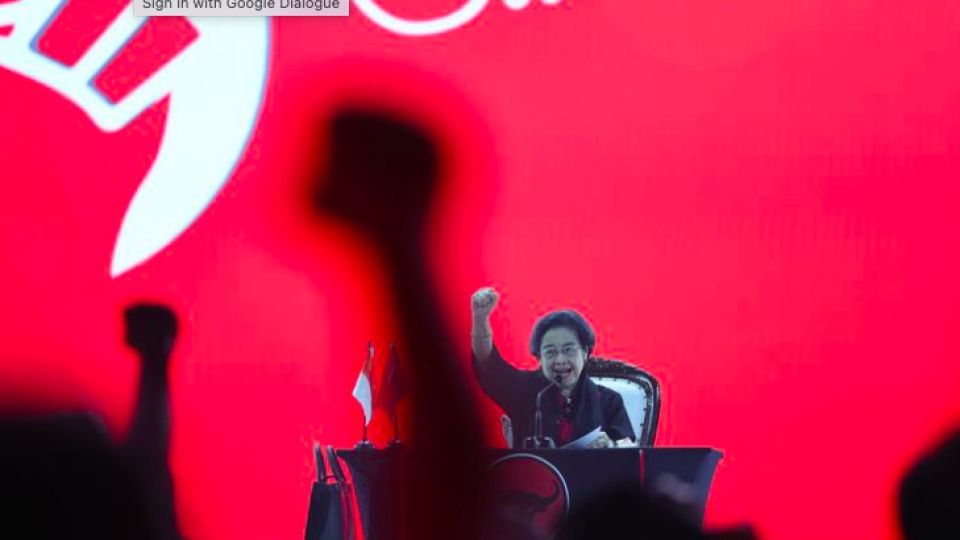May 27, 2024
JAKARTA – Indonesian Democratic Party of Struggle (PDI-P) chair Megawati Soekarnoputri has defied expectations that she would define her party’s stance on the incoming government by hinting instead that it will assume what analysts say is the role of a “balancing force”, allowing it to exercise its political advantage while maintaining its voter base.
All eyes have been on the PDI-P, the erstwhile political sponsor of President Joko “Jokowi” Widodo and the biggest winner of this year’s legislative election, to choose whether it will join president-elect Prabowo Subianto’s government or head into the opposition.
At the start of the party’s national working meeting last week, Megawati sent a strong message criticizing the work of the Jokowi administration in safeguarding democracy.
But when it came to concluding the three-day event on Sunday, the PDI-P matriarch resisted pressure to unveil the party’s position with regard to the incoming administration.
“It’s pretty presumptuous [to expect an announcement now]. At this very moment I speak, I would still have to properly calculate the political risks,” Megawati said in her closing speech.
“Of course, I’m going to play around with it a bit,” she remarked, adding that it would be best to focus on the upcoming regional elections first.
She later noted that strategic matters such as the PDI-P’s future direction would be decided at the party’s congress scheduled for next year.
Acknowledging that many had been awaiting the announcement of her party’s stance, Megawati said the PDI-P would remain a guardian of democracy whatever her decision was.
The meeting, held in Jakarta from Friday to Sunday, discussed topics that included the PDI-P’s future position vis-à-vis the Prabowo administration and the party’s performance in the February general election.
The meeting produced a 17-point recommendation that was read out by Megawati’s daughter and party executive Puan Maharani on Sunday. In one of the points, the party members granted Megawati the authority to decide the party’s position and proclaimed their faith in her to navigate post-election political dynamics.
The recommendation also included a call for Megawati to “only forge cooperation and communication with those who have a strong commitment to [the spirit of the 1998] Reform, democracy, meritocracy and the rule of law”.
It said democracy required checks and balances and called on PDI-P lawmakers to push for legislation that would strengthen democracy and ensure equal treatment of political parties in and outside of the government.
Party members also said the February general election was “the worst election in the history of Indonesia’s democracy”, citing state intervention and misuse of state resources.
A visibly emotional Puan paused her speech for a moment before she offered an apology on behalf of the party for unethical behavior from some of its members. She did not specify who she was referring to.
The party repeatedly accused Jokowi of misusing his office to intervene in the election after he tacitly threw his weight behind his son, Gibran Rakabuming Raka, to run for vice president alongside then-presidential candidate Prabowo, opting not to support PDI-P presidential candidate Ganjar Pranowo. The party later said that through that decision, Jokowi had effectively terminated his PDI-P membership.
Analysts noted that the absence of a definitive answer from Megawati on her party’s stance toward the incoming government sent the message that it would take on the role of a balancing force to the new administration while refraining from positioning itself firmly as an opposition force.
“The PDI-P has seen that Prabowo himself has the intention of maintaining good relations with the party,” Airlangga Pribadi, a political science lecturer at Surabaya’s Airlangga University, told The Jakarta Post.
“This is then put to good use by the PDI-P by increasing the party’s bargaining position in [any future communication with pro-Prabowo parties] while also maintaining ties with its own voters.”
Maintaining communication with other parties, including those in Prabowo’s governing coalition, would be especially important to help the PDI-P win regional elections in November, Airlangga added.
“The chance of the PDI-P building alliances with other political parties for the local elections will be slim if the PDI-P labels itself as the opposition today,” he added.
The party may take a firmer position, however, after Prabowo’s inauguration in October, said analyst Agung Baskoro of think tank Trias Politika Strategis.
“The PDI-P might still want to see whether Prabowo will lead his government in a different direction than Jokowi. If this is the case, it could be an entry for the party to work together with the incoming administration,” Agung said.
“The PDI-P certainly also has a great interest in maintaining its voter base by choosing to be a balancing force, so that [if] it decides to support the government later, its supporters will not be immediately disappointed,” he added.


